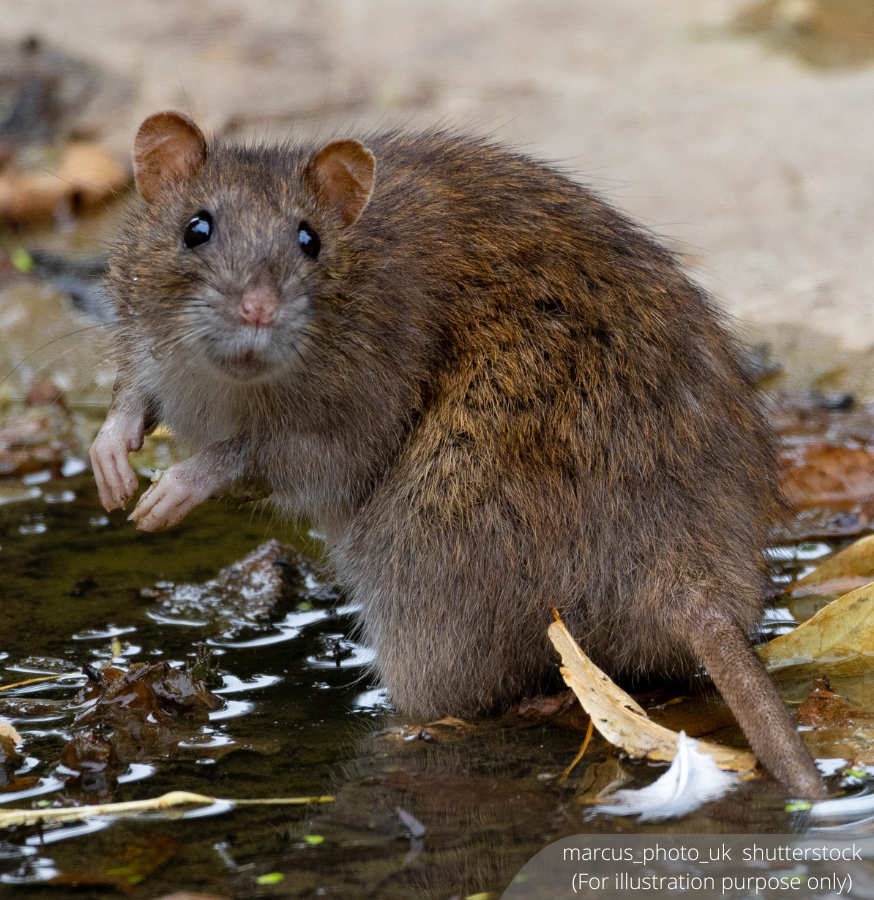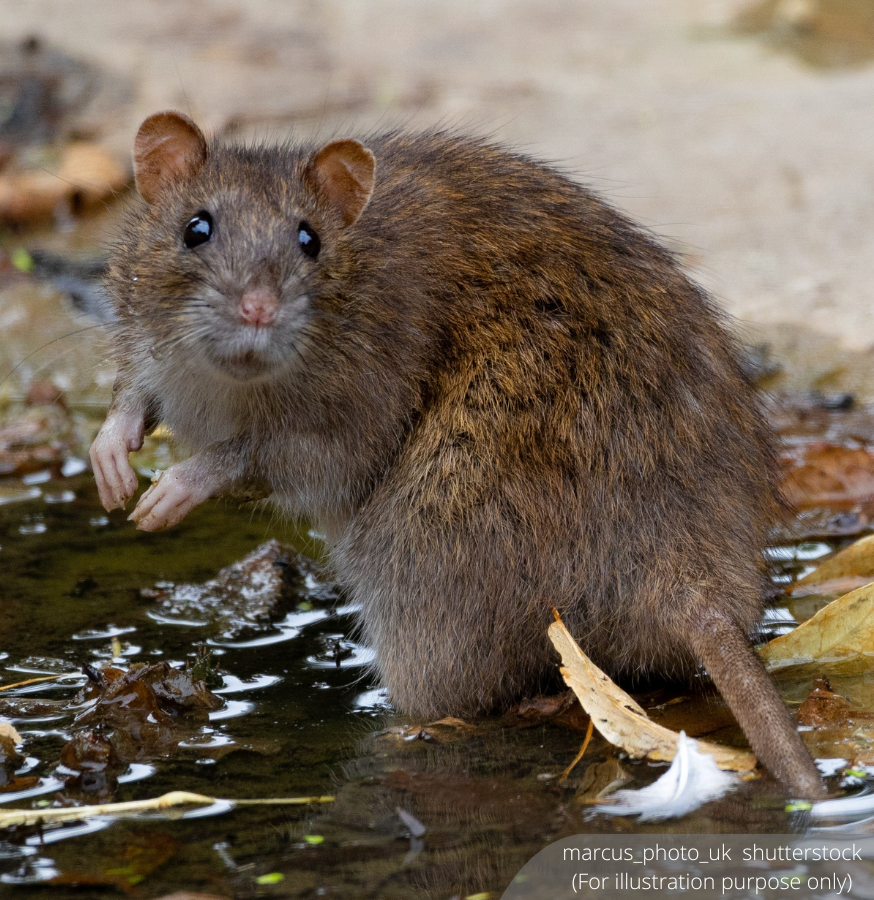Kota Kinabalu’s Shocking RM2 Bounty on Rats Sparks Outrage!
Kota Kinabalu’s Innovative Rat Extermination Campaign
The city of Kota Kinabalu, located in Malaysian Borneo, has launched a unique initiative aimed at tackling a growing rat problem. The Kota Kinabalu City Hall is offering a reward of RM2 for every rat caught, whether dead or alive, as part of a rat extermination campaign that is set to conclude on July 31. This effort highlights the city’s commitment to public health and sanitation, as it addresses an issue that has seen an alarming increase in recent months.
The Rising Rat Population
According to data from the Dewan Bandaraya Kota Kinabalu (DBKK), the number of rats caught at the Kota Kinabalu Central Market this year has significantly risen. So far, approximately 190 rats have been captured, which marks a notable increase from the 111 captured during the same period last year. This surge in the rat population raises concerns about potential health hazards and underscores the necessity for effective pest control measures.
Objectives of the Campaign
The primary objective of the rat extermination campaign is to reduce the rat population in urban areas, particularly around food markets and residential neighborhoods. Rats are known carriers of various diseases, which can pose serious health risks to the community. By incentivizing residents to participate in the extermination process, the city aims to create a cleaner and safer environment for its inhabitants.
Community Involvement
One of the standout features of this campaign is its emphasis on community involvement. Residents are encouraged to actively participate by capturing rats and bringing them to designated collection points. This not only promotes community engagement but also raises awareness about the importance of pest control and hygiene practices. The RM2 reward serves as a motivating factor for residents to take action and contribute to the city’s efforts in managing the rat population.
- YOU MAY ALSO LIKE TO WATCH THIS TRENDING STORY ON YOUTUBE. Waverly Hills Hospital's Horror Story: The Most Haunted Room 502
Health Risks Associated with Rats
Rats are notorious for spreading diseases such as leptospirosis, hantavirus, and salmonella. These diseases can have severe consequences for human health, making it imperative for cities like Kota Kinabalu to address rodent infestations promptly. The city’s proactive approach in implementing this campaign showcases its dedication to safeguarding public health and minimizing the risks associated with rodent-borne diseases.
Strategies for Effective Pest Control
In addition to the rat capture initiative, the Kota Kinabalu City Hall is likely implementing various pest control strategies to tackle the rat issue comprehensively. These strategies may include:
- Public Education: Informing residents about proper waste management practices and the importance of keeping their surroundings clean to deter rats.
- Sanitation Improvements: Enhancing sanitation services in markets and public spaces to reduce food waste and eliminate potential rat habitats.
- Monitoring and Reporting: Establishing a system for residents to report rat sightings and infestations, enabling authorities to respond swiftly to emerging issues.
The Role of Local Authorities
Local authorities play a crucial role in managing urban pest control. The Kota Kinabalu City Hall’s initiative reflects an understanding of the complexities involved in controlling rat populations in densely populated areas. By taking a proactive stance, the city demonstrates its commitment to maintaining public health standards and ensuring the well-being of its residents.
Lessons from Other Cities
The Kota Kinabalu rat extermination campaign draws inspiration from similar initiatives in other cities around the world. Many urban areas have successfully implemented rat control programs that involve community participation, financial incentives, and comprehensive public health strategies. By learning from these examples, Kota Kinabalu can refine its approach and enhance the effectiveness of its campaign.
Conclusion
The rat extermination campaign launched by Kota Kinabalu City Hall is a vital step towards addressing a pressing public health concern. With the rising number of rats in the city, the initiative not only aims to reduce the rodent population but also fosters community involvement and awareness about pest control. As the campaign continues until July 31, residents are encouraged to participate actively and contribute to creating a cleaner and healthier environment for all.
In summary, Kota Kinabalu’s approach to rat extermination serves as a model for other cities facing similar challenges. Through community engagement, effective pest control strategies, and a focus on public health, the city is taking significant strides in managing its rat population and ensuring the safety of its residents. The success of this campaign could pave the way for future initiatives aimed at promoting sanitation and public health in urban areas.

Kota Kinabalu City Hall is offering RM2 per rat, dead or alive, under a rat extermination campaign ending 31 July.
DBKK says around 190 rats have been caught at the Kota Kinabalu Central Market alone so far this year, up from 111 in the first half of last year.
— BFM news (@NewsBFM) June 26, 2025
Kota Kinabalu City Hall Offers RM2 Per Rat: An Unconventional Campaign
If you haven’t heard the latest buzz from Kota Kinabalu, here’s a quirky yet effective initiative that’s capturing attention. The Kota Kinabalu City Hall is offering RM2 for every rat brought in—whether they’re dead or alive. Yes, you read that right! This rat extermination campaign runs until July 31 and aims to tackle the growing rat population in the area.
The city’s authorities, known as DBKK (Dewan Bandaraya Kota Kinabalu), reported an alarming increase in rat captures this year. Approximately 190 rats have already been caught at the bustling Kota Kinabalu Central Market. This figure is notably higher than the 111 rats caught in the same period last year. It’s clear that the rat problem in Kota Kinabalu is becoming more serious, and the city is taking proactive measures to address it.
The Motivation Behind the Campaign
So, why is Kota Kinabalu City Hall offering RM2 per rat? The primary motivation is public health and hygiene. Rats are notorious carriers of diseases, and their presence can lead to various health issues for residents and visitors alike. This extermination campaign is not just about making a quick buck; it’s fundamentally about keeping the community safe and healthy.
Additionally, public awareness plays a crucial role in this campaign. By incentivizing residents to participate, the city is encouraging a collective effort to reduce the rat population. It’s a community-driven initiative that combines humor with urgency—who would have thought that catching rats could come with a payday?
How the Campaign Works
Participating in the campaign is fairly straightforward. Residents simply need to bring their captured rats—dead or alive—to designated drop-off points outlined by the Kota Kinabalu City Hall. Once the rats are verified, participants will receive their RM2 reward for each rat. It’s a simple exchange that fosters community involvement while addressing a pressing public health concern.
The campaign has garnered mixed reactions from the public. While some residents view it as a humorous and innovative solution, others express concern about the ethical implications of incentivizing rat-catching. Regardless of the opinions, it is essential to acknowledge the serious issue that this campaign seeks to resolve.
Impact on the Community
The ongoing rat extermination campaign has already made a significant impact on the community. The increase in rat captures at the Kota Kinabalu Central Market indicates that many residents are actively participating. It’s more than just a monetary incentive; it reflects a community coming together to confront a common problem.
Moreover, this initiative has sparked conversations about hygiene and pest control in the city. It has encouraged residents to be more vigilant and proactive about their surroundings. After all, a clean city is a healthy city, and collective efforts can lead to substantial changes.
Comparative Analysis: Other Cities’ Approaches
Interestingly, Kota Kinabalu isn’t the only city grappling with rat infestations. Many urban areas worldwide have implemented creative strategies to manage their rodent populations. For instance, some cities in the United States have launched similar campaigns, offering cash rewards for reported rat sightings or captured rodents.
In contrast, cities like New York have opted for more traditional methods, employing pest control professionals to manage the rat population. While these approaches may differ, the underlying goal remains the same: to ensure a safe and healthy environment for all residents.
Kota Kinabalu’s RM2 per rat initiative is an innovative approach that focuses on community involvement. It invites residents to take an active role in safeguarding their environment, and it’s fascinating to see how different cities tackle similar challenges.
The Future of the Campaign
As the rat extermination campaign progresses, there’s a palpable sense of curiosity about its future. Will Kota Kinabalu City Hall extend the campaign beyond July 31? Will they consider increasing the reward for each rat? While no announcements have been made yet, the positive community response might encourage city officials to continue their efforts.
Moreover, the success of this campaign could pave the way for future initiatives aimed at improving public health and safety. The collaboration between city authorities and residents can serve as a model for other cities facing similar challenges. After all, when communities work together, remarkable changes can occur.
Public Reactions and Community Involvement
The public response to the rat extermination campaign has been overwhelmingly positive. Many residents are taking to social media to share their experiences, and some even post humorous pictures of their “rat catches.” It’s refreshing to see how a serious issue can be approached with a light-hearted attitude, helping to alleviate some of the stigma associated with pest control.
The participation of local businesses has also been notable. Some shops and eateries are encouraging customers to join the campaign by offering discounts to those who bring in rats. This community spirit not only promotes the campaign but also strengthens local ties. It’s a win-win situation that turns a pest problem into a community event.
Health Implications of Rat Infestations
The health implications of rat infestations cannot be overstated. Rats are known carriers of various diseases, including leptospirosis, hantavirus, and salmonella. These diseases can pose serious health risks to humans, making the extermination campaign even more critical.
By reducing the rat population, the city is taking essential steps to protect public health. It’s vital for residents to understand the risks associated with rats and to actively participate in initiatives like this one. The more aware the community is, the better equipped they will be to maintain a safe and sanitary environment.
Conclusion: A Unique Approach to a Common Problem
Kota Kinabalu’s rat extermination campaign, offering RM2 per rat, is an inventive solution to a common urban challenge. It highlights the importance of community involvement in addressing public health issues while adding a touch of humor to the situation.
As the campaign unfolds, it will be interesting to see how the city continues to engage its residents and what future initiatives may arise from this unique approach. The ongoing efforts serve as a reminder that when communities unite against a common challenge, significant change is possible. Whether you’re a resident of Kota Kinabalu or just interested in urban health issues, this initiative is a fascinating case study of community action in the face of adversity.

